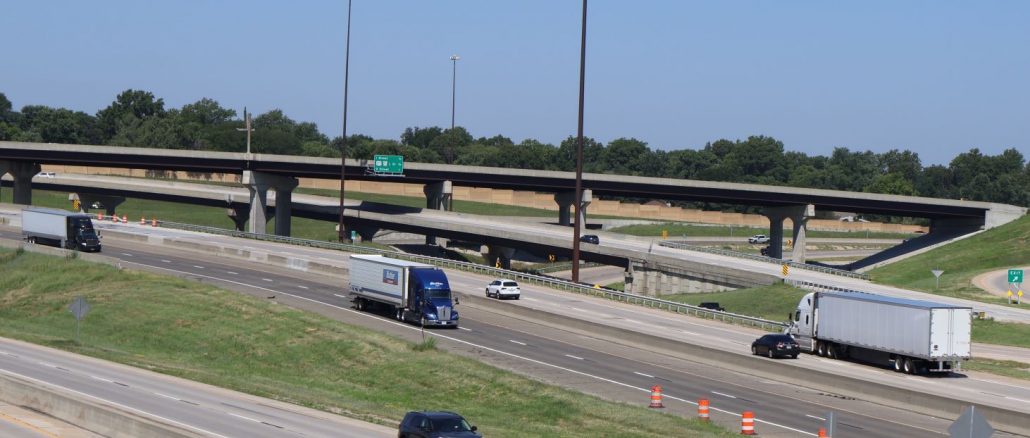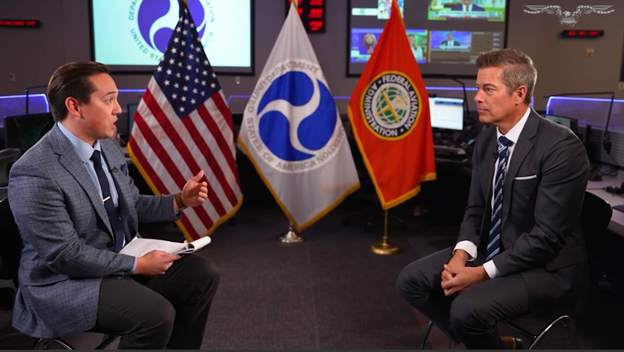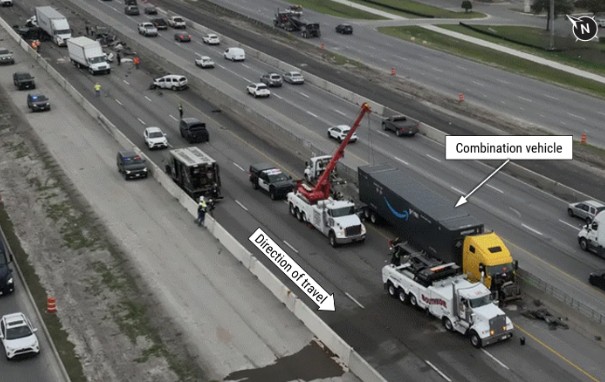
By GTM Staff (With use of ChatGPT in contributing analysis– see how we use ChatGPT)-
August 3, 2025
A sharp decline in enforcement actions by the Federal Motor Carrier Safety Administration (FMCSA) during the Trump administration raised concerns among safety advocates, according to a detailed April 2025 report by The Washington Post. The investigation, authored by Ian Duncan and Hannah Natanson, found that enforcement cases plummeted by nearly 60% in the first two months of President Trump’s second term compared to the same period under President Biden. The FMCSA adjudicated only 157 enforcement cases in that window, compared to 382 during the previous year.
This decline coincided with policy directives from Transportation Secretary Sean P. Duffy and FMCSA leadership aimed at introducing more “due process” into the agency’s enforcement regime. The Department of Transportation (DOT) said its approach prioritized fairness, transparency, and legal consistency, although critics contend it came at the expense of highway safety.

“The inability to use those tools is a really big deal,” said Zach Cahalan, executive director of the Truck Safety Coalition, quoted by The Washington Post. “It creates an incredibly unsafe environment on the roads and… is an abdication of their fundamental mission.”
Enforcement Backlogs and Paused Cases
Internal documents obtained by The Post showed a backlog of nearly 70 high-risk cases that were paused or dropped—many of them involving companies investigators believed should be taken off the road. In at least one instance, a Utah-based company involved in a fatal crash saw its enforcement case quietly dismissed following internal legal delays.
The agency’s slowdown was triggered in part by a post-inauguration legal directive requiring all enforcement cases to be reviewed by DOT lawyers in Washington—a move that created a bottleneck and discouraged regional investigators.
According to SaferWatch and FMCSA’s own Safety Measurement System (SMS), the agency issued significantly fewer “unsatisfactory” safety ratings in Q1 of 2025 than in any quarter since SMS data began being published in 2010. The average monthly number of carriers receiving this rating—a status that effectively grounds unsafe trucking companies—fell from 17 under Biden to zero in January and February 2025.
Safety Data Points to Growing Risk
The enforcement pause came despite rising fatalities involving large trucks. The National Highway Traffic Safety Administration (NHTSA) reported that 5,970 people were killed in large truck crashes in 2022, up from about 4,300 a decade earlier. Most of the victims were occupants of other vehicles.
A recent crash in March 2025 involving ZBN Transport, which left five dead on I-35 near Austin, brought renewed scrutiny. The truck was hauling for Amazon, and FMCSA confirmed it was investigating the company. DOT Secretary Duffy said on social media that criminal referrals were being considered.

Industry Influence and Leadership Appointments
Critics have also expressed concern over the agency’s current leadership. Jesse Elison, a longtime trucking industry attorney, currently serves as FMCSA’s acting administrator while Trump’s nominee, Derek Barrs, awaits Senate confirmation. Elison has previously served in senior legal roles at Montgomery Transport and Bennett Family of Companies, both prominent logistics firms. His law firm, Taylor Nelson, noted in a blog post that Elison’s appointment would help “build a better future for our industry.”
Industry groups, such as the Owner-Operator Independent Drivers Association (OOIDA), have long argued for reform in how safety ratings are issued. In a November 2023 letter to FMCSA, OOIDA said the current system lacked consistency and due process, especially for small carriers facing “conditional” or “unsatisfactory” ratings that could severely limit business.
Recent Activity and Enforcement Trends (Mid-2025)
As of August 2025, the FMCSA has taken steps to revive stalled enforcement cases. According to data from DataQs and Enforcement Program Performance Metrics released in July, enforcement actions have increased slightly in Q2, though they still trail historical norms. FMCSA issued 11 “unsatisfactory” ratings in June—up from zero in January—but advocates say it’s far from a return to form.

DOT’s most recent quarterly report stated that “FMCSA has made measurable progress in reducing case backlog and is committed to maintaining a balanced enforcement posture that respects both highway safety and procedural fairness.”
However, advocacy groups argue that without decisive enforcement and increased carrier oversight, road users remain at greater risk. Road Safe America, a nonprofit advocating for stricter truck safety standards, warned in a July 2025 newsletter that “relaxing safety enforcement amidst rising fatality rates is irresponsible and dangerous.”
Conclusion
The Trump administration’s approach to FMCSA enforcement continues to draw criticism for prioritizing industry concerns over public safety. While recent months have shown a modest uptick in regulatory activity, the effects of early 2025’s enforcement pause may be felt for years. As the FMCSA navigates its role under evolving political and industry pressures, the question remains: can the agency restore both public confidence and roadway safety?
Sources:
- The Washington Post, “Truck safety enforcement plummets under Trump, data shows” (April 7, 2025)
- Federal Motor Carrier Safety Administration – https://www.fmcsa.dot.gov
- NHTSA Traffic Safety Facts, 2022
- SaferWatch carrier monitoring system
- DataQs Public Reports (Q1-Q2 2025)
- Road Safe America – Monthly Newsletter, July 2025
- Owner-Operator Independent Drivers Association (OOIDA) – Policy Letters Archive
How We Use ChatGPT for Articles Like This
When we see information and news that seems more like commentary, such as in The Washington Post article that asked for those who have been negatively impacted by the Trump Administration to contact them, we “fact check” those articles using ChatGPT. We do this because of the need to do a deep dive in to the subject. For instance, in The Washington Post article, it is suggested that this was in part due to the lack of enforcement by the Administration. However, the truth could be that the tariffs have impacted the volume of freight moved by truck during the first quarter of 2025. Or, it could be that the Administration has decided to put a moratorium on investigations to evaluate the validity of the previous Administration’s policies or a delay in getting key people into the oversight positions to review enforcements. So, we use ChatGPT to do a deep dive, to develop the story, give alternatives and then ensure how the article is written is NOT commentary, but is news. We then go through the process of editing our articles or updating them to reflect new information or further research performed by humans, as we know that ChatGPT can be wrong. Our goal is to provide the most accurate information available to the public and to provide quality reporting using all the tools available to us but which may not be used by our readers who should have the information delivered in a concise and easy to read method of delivery.